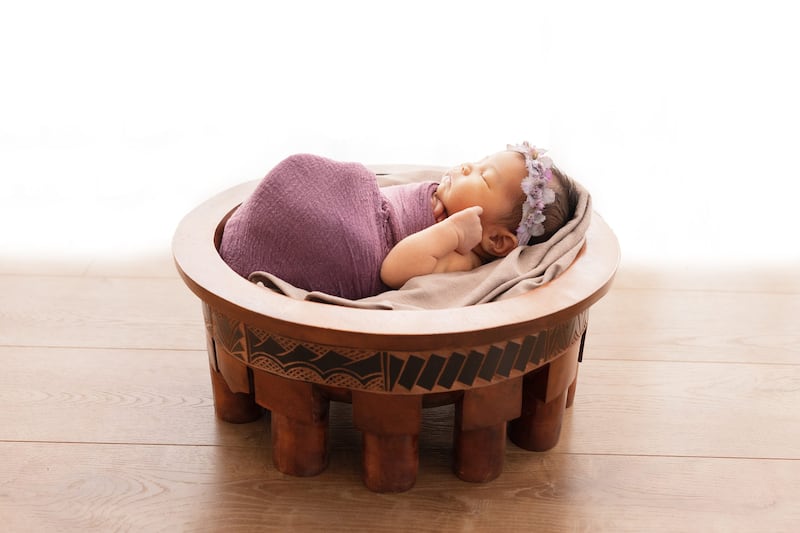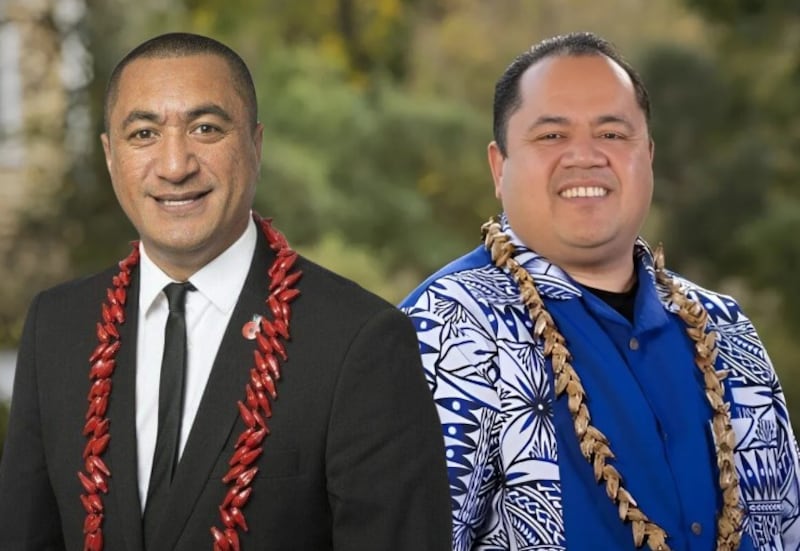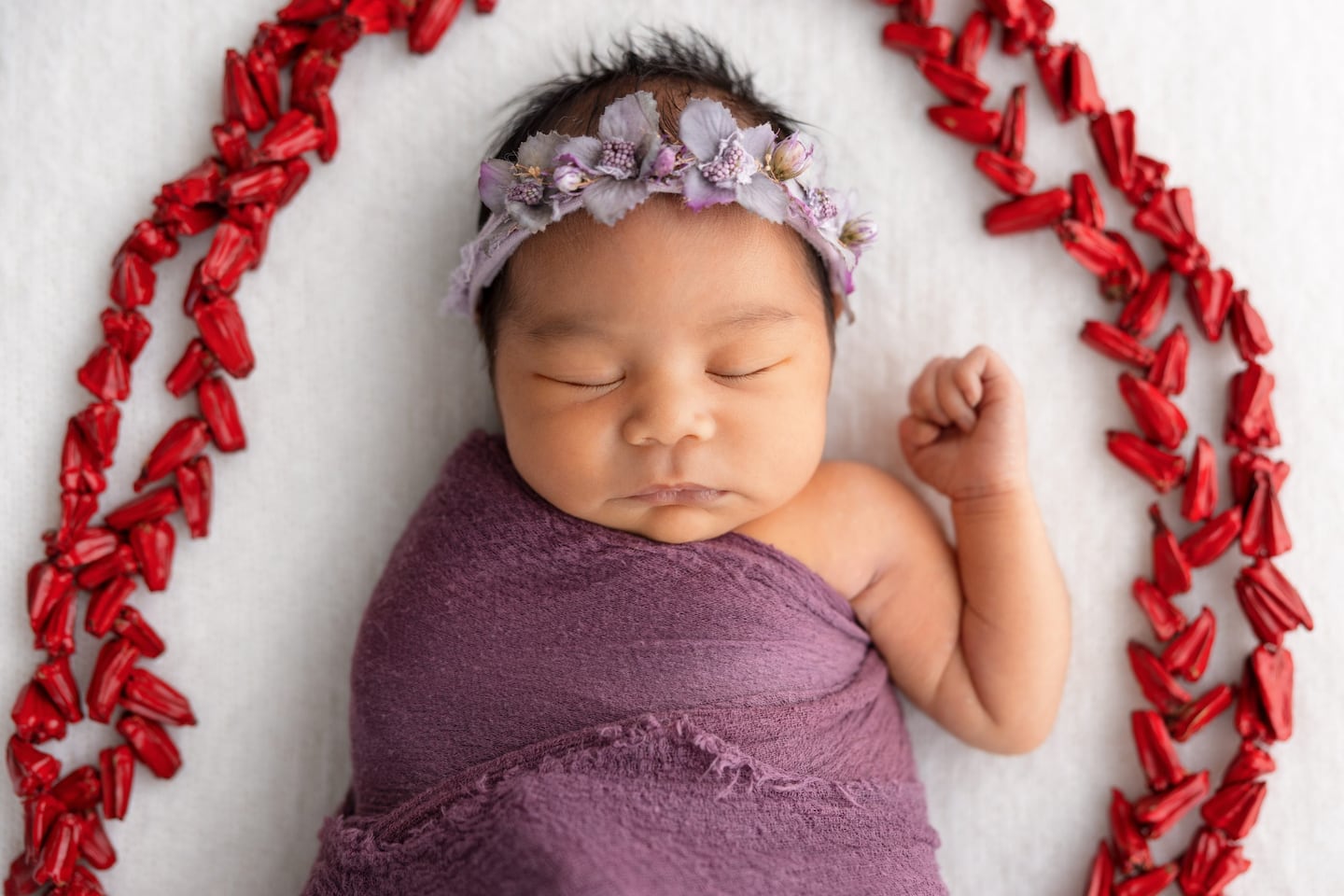As we enter the new year, fresh names are emerging.
According to the Department of Internal Affairs (DIA), the most popular Pacific baby names for 2024 have been announced, with Kaia topping the girls’ list and Malakai leading the boys.
Local Democracy Reporting received the list of all the baby names registered last year from the DIA, although it’s important to note that this list is unofficial and not sanctioned by the Department.
Using this data, Mary Afemata compiled an unofficial list for 2024 list focused on names associated with Polynesia, Melanesia, and Micronesia, while separate from Māori names unless there was an overlap.
The official Māori baby names for 2024 will be released closer to Matariki, as the DIA works closely with Māori to establish clear criteria for identifying Māori names.
However, the department has not yet created an official list of Pacific baby names and does not have this initiative planned for 2025.
Kaia is the most popular girl’s name, with 85 registrations, while Malakai is the leading boy’s name, with 57.

Kaia, of Hawaiian origin, means “the sea”, while Malakai, the Tongan and Fijian form of Malachi, means “messenger of God.”
Manaia ranked second among the girls and occupies the eighth spot on the boys' list.
Interestingly, in Sāmoan, Manaia means “beautiful” or “nice”, and it is also connected to Māori mythology.
Leilani, the third most popular girl’s name, is also of Hawaiian origin and means “heavenly garland of flowers” or “heavenly child.”
Other popular Pacific names for girls included Malia, Kiana, Mele, and Kehlani.
For boys, Koa is the second most popular name, meaning “brave,” “bold,” or “warrior”, and refers to the native Hawaiian koa tree. Kai, the third most popular name, also of Hawaiian origin, means “sea” or “ocean.”
Other popular names included Sione, Keanu, Te Ariki, and Ariki.
Overall, the top baby names in New Zealand for 2024 were Isla for girls and Noah for boys.
Noa, a Pasifika variation of Noah, also made the list of top Pacific boy names for 2024.

Tauanu’u Nick Bakulich, chair of the Māngere-Ōtāhuhu local board, shared his name, Nicholas, with 22 newborns last year and provided his thoughts on the unofficial list.
“It’s probably a sign of the times. The names are a lot more contemporary now, as opposed to once upon a time when it was almost close to 100 per cent biblical names. It’s the modern age we live in.”
The name Hawaiki, given to 26 baby boys last year, refers to the ancestral Polynesian homeland and is of Māori origin, although its Polynesian roots can be debated.
Atarangi, the tenth most popular baby girl name, is also a Māori name with ties to the Cook Islands.
Tauanu’u acknowledges this discussion: “Yeah, leave that to the academics. It’s an interesting conversation.”
Sāmoan language expert Lemoa Henry Fesulua’i, Senior Leader for Engagement and Partnerships in the Office of Pacific Advancement at Auckland University of Technology, commented on the biblical names that made the top 10.
“Initially, there are a lot of biblical names, a lot of transliterations names like Malakai is Malachi. Sione’s John, Mele’s Mary in Tongan. [There’s] a lot of Tongan names.”
Lemoa says there is a significant presence of Tongan in the Pacific baby names and, a mix of original or indigenous names, floral names, and gender-neutral names.
“A lot of the names I’ve mentioned at first glance, like the royalty names, seem like a reclaiming of their identity as noble.
“If there’s 24 Mele, 35 Malia, and 36 Sione, it’s either biblical or a namesake, just to revive their name, even though they’ve given me short versions.”
Lemoa recalls his late mentor, known as Mele, whose full name was Melengalenu’u. In many Pacific Islands, especially Samoa, names hold significance as a connection to identity, which goes beyond just the Western concept of a birth certificate.
“The name itself has always been an Indigenous approach, a concept passed down from our ancestors to connect the young to the land, their identity, and their surroundings.”
He adds, “People are now opting for the originality of ancestral names, reclaiming their identity. It’s about connecting with who we are, where we come from, and the legacy of our ancestors.
“From a linguistic point of view, these names are definitely Pacific. They follow a pattern -consonant-vowel or vowel-consonant structures. It’s how we know the cultural distinctions between us,” Lemoa explains regarding the unofficial list.
Polly Atatoa Carr, Associate Professor of Population Health at Te Ngira (Institute for Population Research) at the University of Waikato, commented on the absence of an official list for Pacific names.

“Identity is such an important part of ourselves, our families, and our children growing up. If we are not, from the very beginning, collecting high-quality ethnicity data and representing our Pacific families appropriately, we miss the chance to celebrate them.
“Knowing that we have high-quality ethnicity data - even when it comes to baby names - is crucial. We need to ensure that we are counted appropriately.”
The Department of Internal Affairs registered 59,199 births in 2024, including 19,404 unique names. Parents are encouraged to register their baby’s name within two months of birth.
Most popular Pacific baby girl names for 2024
Kaia 85
Manaia 37
Leilani 35
Malia 35
Kiana 29
Mele 24
Kehlani 16
Tiare 16
Noa 15
Atarangi 13
Most Popular Pacific baby boy names for 2024
Malakai 57
Koa 48
Kai 47
Sione 36
Keanu 34
Te Ariki 34
Ariki 27
Manaia 26
Tai 16
Kainoa 15


